Which software for your network monitoring? Here are our top 17 tools
Among the types of IT supervision, network supervision is particularly popular.
Why is this? Because it enables a single technician to monitor the smooth running of the entire IT infrastructure, whatever its size.
From user-friendliness and assistance to competitive pricing and rationalisation of resources, there are plenty of reasons to equip yourself with network monitoring software.or a Managed Service Provider (MSP), i.e. a service company that remotely manages its customers' IT systems.
What is computer network supervision?
Network supervision refers to monitoring the proper operation of IT networks and the IT services connected to these networks.
More specifically, network monitoring covers :
- quality (bandwidth)
- Internet connection security,
- but also, by extension, to the status of connected services and hardware: servers, printers, workstations, etc.
Network supervision is one of the 3 types of IT supervision along with system supervision (low level) and application supervision.
The 17 best network monitoring software packages
Effective supervision requires monitoring software that centralises information on network health for IT departments.
Comparative table of the 17 best network monitoring software packages
1 of 10
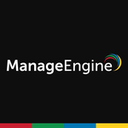 ManageEngine OpManager |  NinjaOne (ex-NinjaRMM) |  Atera | 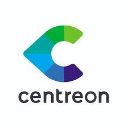 Centreon MAP | 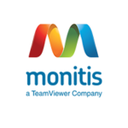 Monitis | 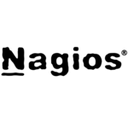 Nagios XI |  Observium |  Pandora FMS | 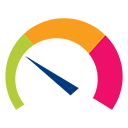 PRTG |  SolarWinds RMM |
|---|---|---|---|---|---|---|---|---|---|
| For all companies | For companies with more than 50 employees | For companies with 1 to 5000 employees | For companies with more than 250 employees | For all companies | For all companies | For all companies | For all companies | For all companies | For all companies |
| See software | See software | See software | See software | See software | See software | See software | See software | See software | See software |
| Learn more about ManageEngine OpManager | Learn more about NinjaOne (ex-NinjaRMM) | Learn more about Atera | Learn more about Centreon MAP | Learn more about Monitis | Learn more about Nagios XI | Learn more about Observium | Learn more about Pandora FMS | Learn more about PRTG | Learn more about SolarWinds RMM |
NinjaOne
NinjaOne (formerly NinjaRMM) is a 100% SaaS IT monitoring and terminal management platform. It centralises the monitoring of servers, workstations, SNMP devices and remote systems in a fluid, modern interface.
Designed for agile IT teams, NinjaOne offers real-time visibility of the network infrastructure and automatable actions at every stage of the lifecycle.
Key features include
- automatic network discovery via agents or SNMP ;
- performance monitoring (CPU, RAM, bandwidth, disk, traffic) ;
- intelligent alerts and escalation scenarios;
- Windows, MacOS and third-party software patch management;
- integrated security (MFA, backup, antivirus);
- remote control and secure remote control.
The solution also offers dynamic reporting, automated hardware/software inventory and fluid multi-site management, ideal for MSPs or in-house IT teams.
In short, NinjaOne combines ease of use, advanced automation and proactive monitoring.

NinjaOne (ex-NinjaRMM)
Atera
Atera is proprietary software in SaaS mode. This comprehensive, intuitive tool invoices the technician rather than the hardware being monitored, and covers all the needs of IT specialists:
- RMM (remote monitoring management), i.e. remote monitoring and management of IT systems and networks;
- network discovery (network analysis, detection of ageing equipment, etc.);
- remote access;
- Professional Services Automation (PSA), etc.
This is complemented by proactive monitoring thanks to a clear interface, customised alerts and real-time visualisation of the network infrastructure.
Automation is enhanced by customisable scripts and an intelligent task execution engine. Atera also offers patch management functions, compatible with several OSs.
Remote access integrates natively with AnyDesk or Splashtop, without complex configuration. The PSA module manages tickets, service contracts and reports.
The hardware and software inventory is updated automatically. The status of the entire IT network is available at a glance.

Atera
CACTI
CACTI is open source software that is rarely used on its own.
It is most often used in conjunction with a more comprehensive monitoring solution such as Nagios.
CACTI's strength lies in its ability to display any type of structured data, which makes it very easy to read its network infrastructure via a Web interface.
CACTI uses RRDtool to generate detailed graphs from historical and real-time data. It enables precise monitoring of network performance, such as bandwidth usage, processor load or traffic per port.
It interrogates equipment via SNMP and adapts to all architectures, even complex ones, thanks to its modular engine. It also offers a system of templates to automate the creation of graphs and apply standardised configurations.
Plugins enhance its functionality, notably for displaying topological maps of the computer network, managing logs and receiving SNMP traps. Fine-grained rights management means that access to the various modules can be restricted or opened according to profile.
Used in conjunction with monitoring software such as Nagios or Centreon, CACTI becomes a formidable network monitoring tool, ideal for analysing data and detecting trends even before problems appear.
Centreon
Centreon is French open source software specialising in network and system monitoring. Designed for mission-critical IT environments, it offers complete visibility over the performance of equipment, applications and services.
With its modern web interface, customisable dashboards and powerful alert engine, Centreon appeals to SMEs and large enterprises alike. A robust, local solution with a nose for breakdowns.
Centreon covers the entire network infrastructure, from cloud to edge, with over 700 ready-to-use connectors. It includes automatic device discovery to keep the monitored estate up to date.
Advanced features include :
- monitoring of routers, switches, firewalls and cloud devices (Cisco Meraki, AWS, etc.) ;
- real-time analysis, event correlation and alerts based on intelligent thresholds or abnormal behaviour via AI;
- automatic reports on availability (SLA), capacity and performance for proactive management;
- a collaborative dashboard: dedicated views for IT, operations or management, with contextualised sharing;
- seamless integration with ITSM, AIOps and APIs to enrich business processes;
- SaaS or on-premise deployment, depending on business needs.
This solution combines the power of open source software with the robustness of a scalable platform. Centreon maps, monitors and anticipates risks to critical services without requiring a PhD in devops.

Centreon MAP
GroundWork
GroundWork Monitor is an all-in-one network and system monitoring platform designed to continuously collect and correlate network performance, availability and events for physical, virtual or cloud infrastructure.
It automates network discovery and equipment enrolment, with agents, SNMP or via API, then maps the network and orchestrates metrics in real time: CPU, bandwidth, databases, containers, sessions and logs.
Key features include
- unified monitoring of servers, databases, applications, logs and network equipment ;
- automation: discovery, resource registration, automatic restart, multi-level alerts, etc;
- IT analytics with visualisations, aggregation, trend detection and root cause analysis;
- open source interoperability: compatible with Nagios, RRDtool, InfluxDB, etc.
The platform offers event management with escalation, tickets and notifications, all centralised in an intuitive console. It includes a Standby Notification Server to guarantee the reliability of alerts.
Icinga
Icinga is an open source network and system monitoring software, created as a fork of Nagios. It checks the availability of network resources, sends notifications in the event of an incident and collects performance data for analysis.
Key features include
- discovery and monitoring of hosts, services, switches, routers, applications, databases, containers, cloud ;
- advanced alerts via notifications, escalations, maintenance windows, event correlation, etc;
- high availability and scalability with a distributed Master-Satellite-Agent architecture, clustering, proxies and multisites;
- rich data collection via SNMP, agents, traps, APIs, databases, containers and the cloud;
- automation and integration: REST API, plugins, modules (Director), DevOps integration, ITSM, custom dashboards, mobile.
Thanks to its modularity, Icinga adapts to hybrid environments - servers, networks, cloud, containers. Filtered alerts and trend analysis enable proactive monitoring and effective management of the network infrastructure.
Monitis
Monitis is a 100% cloud-based network monitoring solution, designed for businesses that want to keep an eye on their IT infrastructure without getting bogged down in technology. Easy to configure, it enables real-time monitoring of servers, websites, applications and critical network resources.
Thanks to its user-friendly interface and customisable dashboards, Monitis offers a centralised view of network status. It sends an alert as soon as a critical threshold is reached, enabling action to be taken before users suffer any disruption.
Key features include
- real-time monitoring of servers (CPU, RAM, disk, traffic) ;
- web monitoring (checking availability, response time, application performance);
- personalised alerts (email, SMS, API) in the event of a detected anomaly;
- automatic reports on performance trends;
- global monitoring via probes located on different continents.
It's an ideal tool for those who want proactive monitoring, without having to deploy a gas factory.

Monitis
Nagios
Nagios is an open source tool that has been the benchmark for monitoring since 2000.
It covers all the needs of the information system (more extensive than network monitoring) and has some very useful features for managing your network infrastructure, such as multi-level notifications and monitoring support management.
Nagios continuously monitors hosts, services, routers, firewalls and applications. It tracks network availability and performance.
Key features include
- plugins and agents for collecting metrics (Windows, Linux, Mac, network) ;
- flexible alerts via email, SMS, escalation, maintenance ;
- reports, trend analysis and graphs;
- integrations via API and external plugins.
Nagios is reliable, scalable, and distinguishes between real failures and offline equipment.

Nagios XI
Observium
Observium is a semi-open source network monitoring software, renowned for its fast learning curve and particularly clear graphical interface. It provides real-time monitoring of network performance, IT systems, servers, switches and a wide range of SNMP-compatible equipment.
Its strengths? Automatic detection of equipment and intuitive visual presentation of key metrics. It's a network monitoring tool that's simple to configure, but formidably effective for IT teams who want to get straight to the point.
Its main features include
- automatic discovery of your network infrastructure ;
- dynamic mapping of your equipment
- customised dashboards with critical indicators
- alerts when thresholds are exceeded;
- extensive support for many manufacturers and systems via SNMP.
Observium is particularly appreciated in heterogeneous environments, where network visibility needs to remain crystal clear without spending hours in the logs. Less verbose than some tools, but always in the right place at the right time.

Observium
OpenNMS
OpenNMS is open source software designed for large-scale network monitoring. It is aimed at IT teams who want to keep an eye on every corner of their infrastructure, without losing their sanity.
Designed for complex enterprise networks, OpenNMS automatically manages equipment discovery, collects critical data and centralises alerts on a unified interface.
The tool is modular, robust and rather talkative when a network problem comes up.
Key features include
- automatic discovery of network nodes and services ;
- real-time monitoring of network performance
- intelligent alerts with event correlation;
- customisable graphs and reports;
- REST API for third-party integrations.
OpManager
OpManager is a SaaS supervision solution that gives you total control and visibility over network management.
OpManager is particularly advanced and comprehensive in this area.
It has a highly ergonomic interface and enables optimum use of resources.
OpManager monitors all network equipment in real time: routers, switches, physical and virtual servers, VMs, printers and much more, with over 2,000 metrics monitored simultaneously.
Key features include
- automatic topology mapping with 2D and 3D views to visualise bottlenecks;
- customisable alerts by email, SMS or webhook, depending on criticality;
- no-code automation: workflows, remediation scripts and intelligent thresholds;
- Probe-Central architecture for multi-site management with high availability.
OpManager is your network maestro, optimising and protecting your infrastructure without you having to lift a finger.

ManageEngine OpManager
Pandora FMS
PandoraFMS is a robust, open source/commercial IT monitoring solution. It covers network, server, application, database, container, cloud and more monitoring.
Its modular architecture centralises alerts, logs, reports and performance data into a single intuitive platform.
Features include
- automatic discovery of equipment and services via SNMP, agents, WMI, APIs, etc;
- real-time monitoring of bandwidth, CPU, memory, DB, containers, etc;
- advanced alerts with escalation, notifications and event correlation;
- integrated log analysis and event management;
- dynamic reports and SLAs to manage IT activities;
- high availability and scalability thanks to clustering and satellite modules.
PandoraFMS adapts to hybrid and multi-site infrastructures. It has a clear web interface, a dashboard editor, an automation engine and modules for compliance, security and predictive analysis.

Pandora FMS
PRTG
PRTG is a proprietary network monitoring tool in SaaS mode that is designed to be very easy to use, although its functionalities are perfectly suited to professionals.
Its rapid installation, automatic network detection and incident anticipation make it a strong ally for IT asset managers.
PRTG is based on a system of sensors dedicated to each metric: ping, bandwidth, CPU, SNMP, NetFlow flows, REST requests, etc.
Key features include
- automatic discovery and real-time mapping ;
- customisable alerts by email, SMS, mobile push, webhooks, etc;
- distributed supervision via multi-site and cloud probes;
- detailed reports: history, SLAs, capacity analyses, etc;
- a SaaS version (Hosted Monitor) accessible without installation.
PRTG manages thousands of sensors with high availability. A comprehensive, flexible solution, ideal for transforming your network into a control centre.

PRTG
SolarWinds
SolarWinds is a proprietary software package designed for corporate network monitoring. It stands out for its ability to map the entire infrastructure, monitor bandwidth and detect anomalies in real time.
Its intuitive interface provides a clear view of network performance, enabling you to act quickly in the event of a problem. Modular and comprehensive, it adapts to the needs of IT Departments and Managed Service Providers alike. A powerful ally for keeping control, even in the densest environments.
SolarWinds NPM covers your entire network infrastructure: routers, switches, firewalls, servers, VMs, WAN links.
Key features include
- automatic L1/L2 topology mapping and interactive business maps ;
- customisable alerts: thresholds, escalations, scripts and webhooks;
- visual diagnostics with NetPath for latencies between sites and the cloud;
- predefined reports on SLA, bandwidth, performance and capacity;
- extensive integration via SNMP, WMI, Cisco IP SLA, VMware, cloud, API;
- scalability, clustering, high availability, SaaS or on-premise.

SolarWinds RMM
WhatsUp Gold
WhatsUp Gold is proprietary software in SaaS mode. It is a complete, modular and highly intuitive network supervision tool for SMEs and ETIs that offers you :
- 360° visibility of the supervised IT infrastructure,
- monitoring of all your network resources
- as well as a real-time dashboard showing all your interconnections. From now on, it's easy to identify and resolve potential network faults!
WhatsUp Gold automatically detects devices via SNMP, WMI and flows, creating a dynamic map.
Monitoring covers availability, latency, traffic and interfaces. Alerts can trigger actions or scripts.
The console displays dashboards, topology views and reports to monitor performance and detect bottlenecks.
A module analyses application flows, while log archiving ensures centralised searching.
Zabbix
Zabbix is open source network monitoring software renowned for its robustness and flexibility. It lets you monitor the status of equipment, servers and applications in real time, all via a clear, customisable web interface.
Its dynamic alerts, detailed reports and broad compatibility make it a strategic choice for IT teams. Free but far from basic, Zabbix combines performance and freedom of use.
Zabbix collects SNMP, agent and trap metrics to monitor network performance: traffic, CPU, memory, latency, errors, etc. It uses templates for rapid onboarding. It offers anomaly correlation, escalated alerts and self-healing. Its high availability is based on an active/passive cluster. With a distributed system via proxy servers, it supervises several sites while centralising data.
Key features include
- over 300 network and system templates
- dynamic dashboards, maps and graphs
- data history and prediction;
- agent-based architecture, database and PHP frontend;
- automated alerts, escalations, scripts and tickets.
Zenoss
Zenoss is a general-purpose open source IT supervision software package that allows you to monitor your network. Its speciality, however, is monitoring the nodes of a computer network. Its central dashboard can be used to centralise important information for IT Departments.
Zenoss collects data via SNMP, JMX, WMI, REST and lightweight agents to monitor servers, applications, containers and network equipment from a centralised dashboard.
Its key features include
- dynamic mapping of nodes, interfaces and dependencies
- intelligent correlation of events to reduce noise
- intelligent alerts with programmed actions and automatic remediation
- historical storage on a NoSQL database with analysis and export tools
- support for distributed environments with micro-services and remote proxies
- modular architecture with security and cloud plugins (AWS, Azure)
- API integration with ITSM tools.
Zenoss is a modular solution offering a unified, comprehensive view of critical infrastructure.
The challenges of network monitoring
Guaranteeing the highest possible level of service
Continuous monitoring of the IT network is essential for any company with more than ten employees.
This is a critical size above which a network breakdown can lead to a loss of activity that is detrimental to the company.
💡 For example, if your network is unavailable or difficult to access 1% of the time, that's 87 hours of work affected (multiplied by the number of employees).
It is therefore very important to be able to detect the risk of incidents or the improvements that need to be made before facing a serious technical problem.
Monitoring network activity also ensures that you are properly informed in the event of a problem and that you can implement the right action plan quickly.
Protecting information systems
The other aspect of network monitoring concerns network security. Cybercrime, viruses, phishing and other intrusions cause damage worth over €100 billion in France alone (2024 figures).
To combat these ever-increasing attacks effectively (particularly on mobile networks), the IT Department needs to equip itself with technologies that enable it to understand its strengths and weaknesses, and also to react quickly to any attempt.
The role of supervision is therefore to guarantee a continuous level of quality, often referred to as a Service Level Agreement (SLA), to prevent the risks of service disruption/intrusion and to react quickly to incidents.
How does it work?
Network monitoring can be implemented on the basis of log analysis, command results and local scripts, but it is above all on the basis of standard protocols such as SNMP that computer network monitoring works.
Numerous software packages exist for this purpose. The open source community is particularly active in this field, which is why there is a lot of open source software available, such as ZENOSS or CACTI, mentioned earlier in the article.
The software helps the technician with SMS and email alerts, but also by proposing concrete solutions to resolve or anticipate a problem.
They offer varying degrees of functional coverage, but are generally suitable for all types of business.
Functionalities can range from simple log analysis and router and firewall monitoring to more advanced real-time management of the information system, network administration, databases and servers.
Why opt for network monitoring software?
Whether you're an SME or a large multinational, effective network monitoring requires high-performance monitoring software:
- perform constant network analysis and diagnostics;
- ensure that network processes are running smoothly at all times;
- centralises the key data to be monitored and information on the health of the network;
- send alerts to IT team members as soon as an anomaly is detected.
Of course, network monitoring needs vary from one company and one business to another.
Fortunately, there are many flexible monitoring tools on the market, available for download in all languages, from both open source (often free) and proprietary (pay-per-use) monitoring software publishers.
How do I choose network monitoring software?
Summary table of our selection
| Software | Type of user | Key benefit | 3 key features | Entry price |
|---|---|---|---|---|
| NinjaOne | SME / MSP | Modern, secure supervision | Real-time monitoring, intelligent alerts, IT asset management | On quotation |
| Atera | TPE / SME / MSP | All-in-one (RMM + supervision + ticketing) | Real-time monitoring, automated alerts, patch management | From €149 / month |
| CACTI | Senior system administrator | Open source with advanced graphical interface | RRDTool graphics, SNMP polling, template management | Free |
| Centreon | Enterprise / Key accounts | Scalable open source with business view | Auto-discovery, SLA-oriented monitoring, API/Cloud integration | Free offer |
| GroundWork | IT experts | Scalable open-source monitoring | Metrics collection, Nagios/Zabbix visualisation, cloud/hybrid monitoring | From €24.87 / month |
| Icinga | Sysadmins / DevOps | Large-scale flexible monitoring | Real-time supervision, topological visualisation, customised notifications | On quotation |
| Monitis | Start-ups / SMEs | SaaS simplicity and global availability | Website monitoring, real-time alerts, server supervision | From €8.53 / month |
| Nagios | Companies / Network experts | Extremely customisable | Service monitoring, advanced alerting, custom plugins | Free offer |
| Observium | Network administrators | Automatic discovery and clear graphs | SNMP, RRD curves, automatic detection | From €230.92 / year |
| OpenNMS | Key accounts | Modular, scalable supervision | Event management, flow collection, API integration | On quotation |
| OpManager | SMEs / Large enterprises | Simple, powerful interface | Network maps, flow analysis, automatic discovery | From € 214.47 |
| Pandora FMS | Advanced IT teams | All-in-one, versatile supervision | Multi-source monitoring, dynamic alerts, SLA reports | From €85 / month |
| PRTG | Network administrators at all levels | Fast, intuitive deployment | Customisable sensors, interactive dashboard, dynamic alerts | From €137 |
| SolarWinds | Large companies | Comprehensive professional tools | Network Performance Monitor, NetFlow, advanced reporting | From €5.25 / month |
| WhatsUp Gold | Multi-site companies | Intuitive network visualisation | Automatic mapping, SNMP, custom notifications | Free offer |
| Zabbix | Open source experts | Power and scalability at no cost | SNMP / IPMI / JMX collection, dashboards, custom scripts | On quotation |
| Zenoss | Large IT environments | Modular, cloud-friendly architecture | Hybrid supervision, AIOps, dependency management | On quotation |
What criteria should you look for in good network monitoring software?
Not all tools are created equal. Some do the bare minimum, while others play in the big leagues. To make the right choice, keep an eye on these key points:
-
a clear, user-friendly interface: good monitoring software should not require six months' training. The information should be legible, well-organised and easy to use;
-
intelligent alerts: there's no need to be woken up at 3am for a micro outage. Choose tools that trigger relevant, configurable and prioritised notifications;
-
broad functional coverage: bandwidth, servers, workstations, printers... The broader the view, the better. And if it also offers application monitoring, jackpot!
-
compatibility with standards: SNMP, WMI, NetFlow, etc. Check that the software speaks the right network languages;
-
scalability: is your business growing? The software needs to keep up without exploding in flight;
-
support and community: open source or pay-as-you-go, good software comes with up-to-date documentation, responsive support and an active community.
What are the different types of network supervision?
Passive monitoring
Passive monitoring consists of listening to network traffic without intervening directly. It is often based on packet capture or log analysis. Its advantage: it does not overload the network and detects anomalies by monitoring existing flows.
Active supervision
Active supervision sends regular requests to equipment and services to check their availability and performance. For example, it measures response times using pings or connection tests. This method enables breakdowns or degradations to be detected quickly.
Supervision using probes (agents)
Here, lightweight programmes (agents) are installed on the servers or equipment to be monitored. They collect detailed data in real time and send it back to the central console. This approach offers fine-grained visibility, but may require more resources.
Agentless supervision
Agentless monitoring uses standard protocols such as SNMP, WMI or SSH to interrogate equipment remotely, without installing any local software. It is simpler to deploy but may be less accurate for some parameters.
Distributed supervision
For multi-site infrastructures, distributed supervision deploys several collection points (probes) on different sites. The data is then centralised. This guarantees reliable monitoring, even in the event of a local power cut.
What can we learn from network monitoring tools?
A computer network is as critical as the human nervous system.
Guaranteeing its availability and security is therefore of paramount importance. Network monitoring software helps to address this issue by providing the monitoring, analysis, alert and assistance tools that IT decision-makers need.
Among these tools, open source software accounts for a very large proportion of the offering. However, proprietary software offers more sophisticated ergonomics and more advanced human assistance functions.